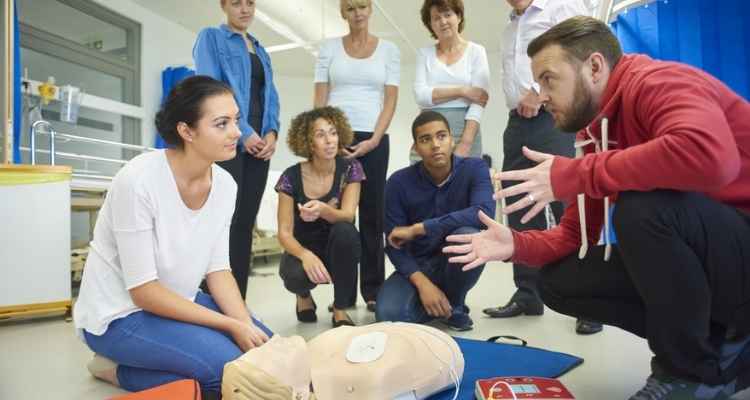Whether you are looking to protect your fellow colleagues or offer support for your students in an emergency, being trained in CPR is important. Knowing firsthand what to do and how you can save the lives of people close to you while ensuring they receive the treatment and care they need in these critical moments.
Many people willingly sign up for CPR courses but are surprised to realize that they must reapply again for certification later. That’s because CPR certification only lasts a period of time. So, how long does your certificate last?
Before we get to the question of “how long is my CPR valid for in Canada?”, let’s take a look at the types of courses available, who needs them, and why CPR certificates must be updated regularly in Canada.
What Courses offer CPR in Canada?
The majority of CPR (cardiopulmonary resuscitation) courses on offer in Canada are administered by the Canadian Red Cross. There are multiple courses that are on offer, including:
- Standard CPR C and AED
- Standard CPR A and AED
- Emergency First Aid with CPR C and AED
- Standard Child Care First Aid with CPR B and AED Child Care
- Standard First Aid with CPR C and AED
However, each course offers different levels of CPR treatment. CPR A is exclusively focused on adults that require help, while CPR B is how to modify the life-saving techniques for children and babies.
The most common and in-demand version is CPR C, which provides you with techniques to care for adults, children, and babies. It’s why most individuals undertake CPR C courses as they get the most coverage.
Most of these courses also offer techniques and training for first aid and AED – automated external defibrillators. As both are instructively linked, participants will learn first aid, AED and CPR techniques over the course.
Courses can take between five hours to two days to complete with a 75% minimum passing grade on a written closed-book knowledge evaluation and the ability to comprehend and successfully demonstrate all required skills.
While you can enroll in these courses directly through the Red Cross, there are many providers of first aid training courses that can offer you the same outline and course direction (https://www.firstaidtrainingcalgary.com/). Make sure that you enroll with highly skilled providers, have a positive record of completion, and are certified by the Canadian Red Cross.
Who Needs to Take CPR Courses?
Individuals in specific industries must undertake CPR courses, including teachers (due to them looking after children), construction and mining, oil and gas, and manufacturing.
Significantly, people within the healthcare industry, such as medical GPs and nurses, are required by regulators to be certified and trained in CPR in case of emergencies.
If you are part of these industries, it is imperative that you enroll in these courses. These courses meet legislation requirements for provincial and territorial worker safety.
The Importance of Recertification
CPR training teaches important life-saving skills that ensure that those injured or incapacitated receive the treatment and care they deserve. And while individuals might be fully trained and confident after their first course, several factors mean that you have to update your certification:
- Situations within workplaces or industries might change, therefore, requiring personnel to update their skills to remain compliant.
- Different workplaces require different training requirements, meaning that you will have to update your certification.
- Participants tend to forget their skills over time as they do not practice them often.
- There are newer and more medically advanced techniques and methods that better help people in emergencies. It makes using current or older methods inadequate.
- Recertification courses keep your skills up to date.
- Ensures that participants can legally deliver CPR techniques without consequences
There are also many personal reasons why you should update your CPR certification, such as wanting to improve your skills or enhance your career. If the opportunity presents itself, you should upgrade your CPR certification.
How Long is my CPR Valid in Canada?
The validity of CPR certifications usually lasts up to three years, particularly those administered by the Canadian Red Cross.
Upon completing the three years, you are required to undertake a recertification course that retrains you in the latest techniques of CPR. Once you complete the recertification course, you will be allowed to administer CPR for a further three years.
If you wish to continue helping people in their hour of need, then make sure you keep track of your CPR expiry date and enroll with a highly recognized first aid provider.

